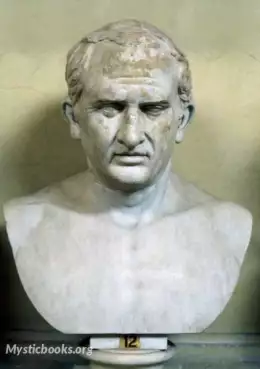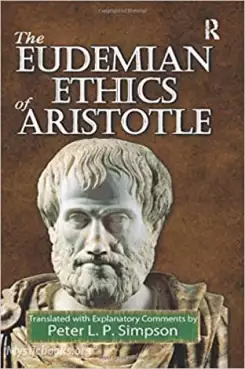
On Duties
'On Duties' Summary
De Officiis is written in the form of a letter to his son Cicero Minor, who studied philosophy in Athens. Judging from its form, it is nonetheless likely that Cicero wrote with a broader audience in mind. The essay was published posthumously.
Although Cicero was influenced by the Academic, Peripatetic, and Stoic schools of Greek philosophy, this work shows the influence of the Stoic philosopher Panaetius. Panaetius was a Greek philosopher who had resided in Rome around eighty years previously. He wrote a book On Duties (Greek: Περὶ Καθήκοντος) in which he divided his subject into three parts but had left the work unfinished at the third stage. Although Cicero draws from many other sources, for his first two books he follows the steps of Panaetius fairly closely. The third book is more independent, and Cicero disclaims having been indebted to any preceding writers on the subject. Michael Grant tells us that "Cicero himself seems to have regarded this treatise as his spiritual testament and masterpiece."
Cicero urged his son Marcus to follow nature and wisdom, as well as politics, and warned against pleasure and indolence. Cicero's essay relies heavily on anecdotes, much more than his other works, and is written in a more leisurely and less formal style than his other writings, perhaps because he wrote it hastily. Like the satires of Juvenal, Cicero's De Officiis refers frequently to current events of his time.
Book Details
Language
EnglishOriginal Language
LatinPublished In
44 BCAuthors

Marcus Tullius Cicero
Roman Republic
Marcus Tullius Cicero was a Roman statesman, lawyer, scholar, philosopher and Academic Skeptic, who tried to uphold optimate principles during the political crises that led to the establishment of the...
Books by Marcus Tullius CiceroDownload eBooks
Listen/Download Audiobook
- Select Speed
Related books

Eudemian Ethics by Aristotle
The Eudemian Ethics is a work of philosophy by Aristotle. Its primary focus is on ethics, making it one of the primary sources available for study of...

A Treatise Concerning the Principles of Human Knowledge by George Berkeley
Does the world exist outside of your mind? In his groundbreaking philosophical work, A Treatise Concerning the Principles of Human Knowledge, George...

Herodotus' Histories Vol 2 by Herodotus of Halicarnassus
The Histories of Herodotus is considered the founding work of history in Western literature. Written in 430 BC in the Ionic dialect of classical Greek...

A History of Greece to the Death of Alexander the Great, Vol 2 by John Bagnell Bury
A History of Greece to the Death of Alexander the Great was first published in 1900. It went on to become a standard text in many colleges and was use...

Aesop's Fables, Volume 04 (Fables 76-100) by Aesop
Dating back to the 6th century BC, Aesop's Fables tell universal truths through the use of simple allegories that are easily understood. Though almost...

The History of Rome, volume 1 by Titus Livius
Embark on an epic journey through the cradle of civilization with "The History of Rome, Volume 1" by Titus Livius. Delve into the heart of ancient pow...

Perfumes and their Preparation by George William Askinson
The art of perfumery is a centuries-old tradition, and George William Askinson's Perfumes and their Preparation is a classic guide to the craft. Perf...

Incidents of Travel in Central America, Chiapas, and Yucatán, Vol. 2 by John Lloyd Stephens
In 'Incidents of Travel in Central America, Chiapas, and Yucatán,' John Lloyd Stephens recounts his expeditions to the Mayan ruins of Central America...

A Treatise on Good Works by Martin Luther
In this exposition of the Ten Commandments, Martin Luther attempts to build a bridge between justification by faith and the life of the Christian mani...

The Elder Edda by Sæmund Sigfusson
Embark on a captivating journey into the realm of Norse mythology and heroic poetry with The Elder Edda, a seminal collection of ancient poems compile...
Reviews for On Duties
No reviews posted or approved, yet...